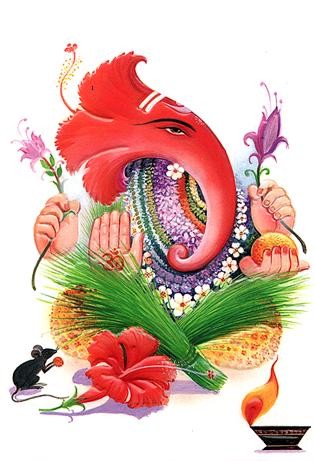వనజ : Women, Art and the Caste System

Written and directed by Rajnesh Domalpalli for his MFA thesis at Columbia University, Vanaja made its world premiere at the 2006 Toronto International Film Festival. This coming-of-age drama, shot with a cast of non-professional first-time actors in rural southern India, received an even greater honor when it was given the Best First Feature Award last month at the 2007 Berlinale.
The film follows the aspirations of the title character, a 14-year-old daughter of a poor fisherman who starts working for the village landlady as she aims to escape caste and class to learn Kuchipudi dance. Her intelligence and independence both help and hinder this undertaking, with her life becoming even more complex when she falls into an uneven relationship with the landlady's much older son, recently returned from the U.S., and who is running for office. "Matters escalate," concludes the film's official synopsis, "spiraling downwards and she is pitched into a tale of class, family and animus from which there is only one escape."
Vanaja was written as a project submission for my first semester class at Columbia University in the fall of 2001. Inspired by a child's scream in the film Sophie's Choice, it was to be a tale about mother-child separation, but as it developed over the next three semesters, it gradually took on the elements of class distinction and conflict that continue to infuse our society and culture even today.He goes on to describe the extensive and difficult casting process, the selection of lead actor Mamatha Bhukya (who subsequently received a year of acting and dance training), the challenge of scouting and selecting locations for filming, and the "nightmare" of acquiring an elephant for the shoot, which kicked off in Jan. 2005.
Pre-production began early in 2004. The first hurdle was finding appropriate talent and crew in a state where most filming was big-budget Tollywood -- the Telugu language version of Bollywood that was particular to our state of Andhra Pradesh. Given the rural nature of the story, and the tendency of most local acting to lean towards the theatrical, it was clear that non-actors drawn from hutments, labor camps and the vast Indian middle class were the right choice. They would have to be put through lengthy acting training, the lead would have to learn Kuchipudi dance -- no easy task, and the landlady would have to learn Carnatic classical music -- if the film were to have any sense of authenticity at all.
 Domalpalli concludes:
Domalpalli concludes:When shooting did commence, on January 13, looking through a Super 16mm film lens for the first time was a great shock for me, having never shot film before. All of my previous projects were video shorts -- which had a very different aspect ratio -- one that had dictated all of my storyboarding and camera moves. But DP Milton Kam’s reassuring and supporting presence, a crew that realized that making a Telugu language independent film such as this was worth pouring life blood into, and a cast that was nervous yet rearing to go, made all the difference in giving the film a momentum that sent it sailing. For any independent film to succeed, a hundred miracles need to happen, and we feel grateful that in our case they all did.
The filmmaker recently started publishing trailers for the film online as it moves on to other festivals -- including here in Madison -- following its success at the Berlinale. The latest version can be viewed below.
Reviews of Vanaja have been published in Variety and by Oscar Peyrou for the International Federation of Film Critics, who describes it as "relevant and strong both socially and politically, due to its brave denunciation of the obsolete caste system which doubly discriminates against women."
More information about Vanaja can be found in its IMDB profile and Wikipedia entry, as well as in program details presented by the Toronto International Film Festival and the Berlinale.
Courtesy: Variety.com


2 Comments:
Sounds very interesting.
I just hope these folks release their works on DVD so that folks like us can watch them legitimately.
Thanks for writing on this.
michael kors outlet
snapbacks wholesale
michael kors outlet
ugg boots
jordan 4
ugg boots
coach outlet
michael kors bags
michael kors handbags
michael kors outlet
Post a Comment
<< Home